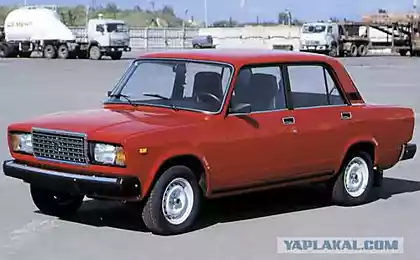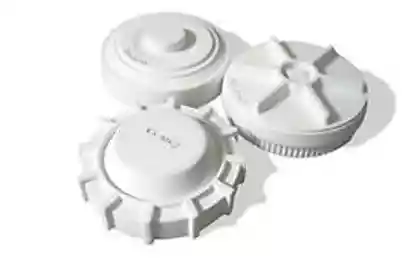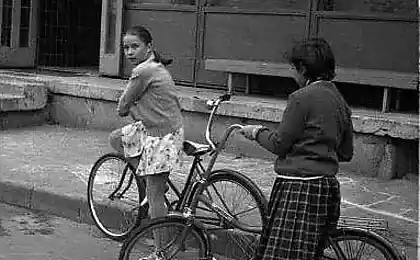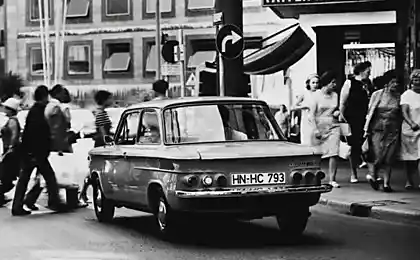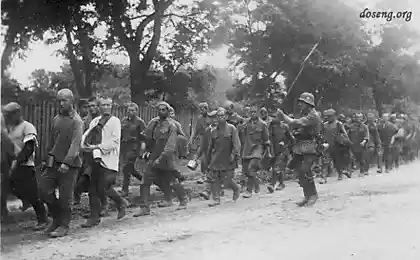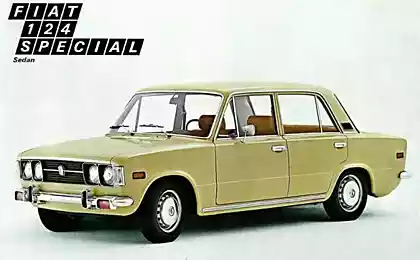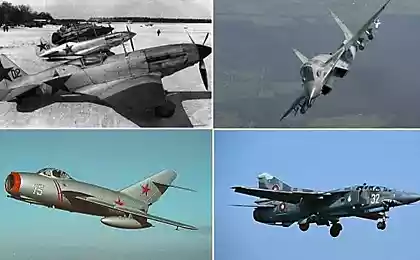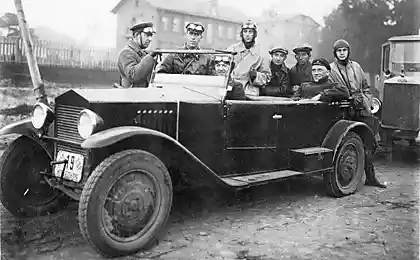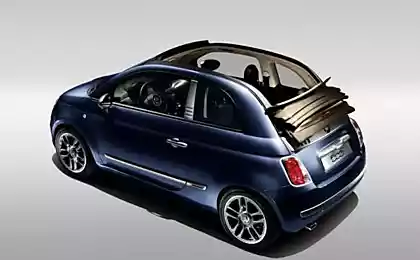220
“Zhiguli” no one copied, just acquired a license from Fiat, in vain slander the Soviet masters
It is well known that the popular “penny” appeared thanks to the cooperation of Soviet engineers with the Italian concern Fiat. Therefore, VAZ-2101 and Fiat-124 are similar as two drops of water. But few people know that other legendary Soviet cars have foreign relatives. How it happened, we will tell in this article.
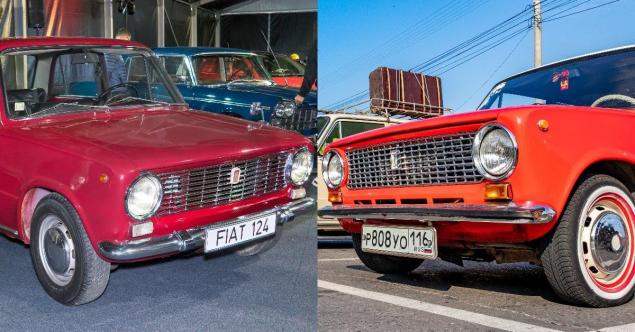
Legendary Soviet cars GAZ-A and Ford A In 1929, industrialization began in the USSR. Within its framework, American companies designed and took part in the construction of automobile plants in Moscow, Stalingrad and Nizhny Novgorod. At the same time, the government bought a license to produce cars of the world-famous Ford Motor Company.
On December 6, 1932, the first passenger car in the USSR came off the assembly line - GAZ-A t.co/E6gl3k07Mi pic.twitter.com/46QO8HmG96
— GAZ (@GAZautomobiles) December 8, 2014
The production of a licensed copy of the Ford at the Gorky Automobile Plant was established only by the end of 1932. The first copies of the GAZ-A generally corresponded to the Ford Model A Standard Phaeton. But the experience of operation in the northern regions of the USSR forced to make a number of changes to the design. In particular, the body was closed and reinforced suspension.
In 1936, when the GAZ-M1 and Ford Model B, produced in the amount of 42,000 GAZ-A became obsolete, Ford purchased another license.
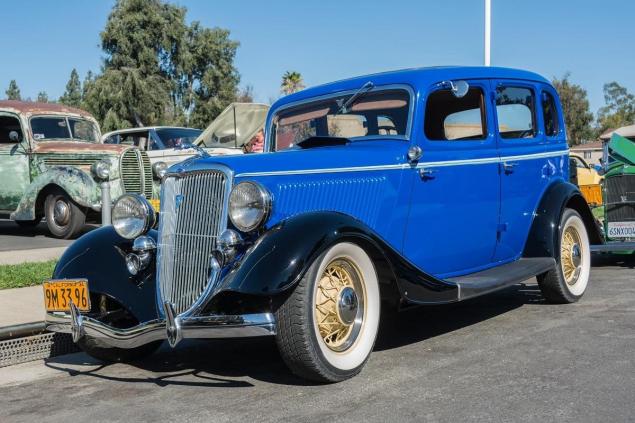
It produced the main car of the Soviet police GAZ-M1, or “funnel”. The prototype was the Ford Model B 40A Fordor Sedan.
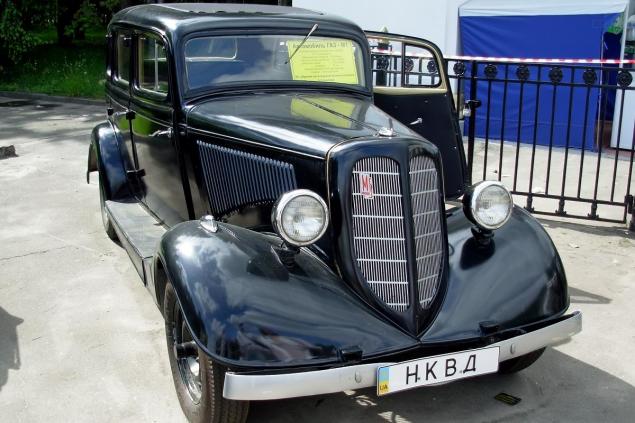
But with the external similarity, it was already another design, many of the nodes of which had to be designed anew. Soviet designers reinforced the frame, replaced the springs, reworked the steering and brake drive.
The Moskvich-400 and Opel Kadett K38 were still fighting in Germany in the spring of 1945, and the State Defense Committee had already adopted a resolution "On the restoration and development of the automotive industry." According to it, it was planned to establish the production of the Opel-Cadet K-38 car at the Moscow Small Car Plant (MZMA).
The Soviet passenger car Moskvich-400 (Moskvich-401) is an exact copy of the German Opel Kadett K38, made at the facilities of Adam Opel. Safely exported to the USSR. Serially produced in the USSR at the Moscow plant "ZMA", later - "MZMA" from December 1946 to 1954. pic.twitter.com/YtNgIaeVZ
— Supperbraun (@supperbraun) May 7, 2021
To do this, it was proposed to use captured documentation, equipment and equipment, which had yet to be removed for reparation from the Opel plant in Rüsselsheim. But it wasn't that easy to do.
View this post on Instagram
Posted by Oldcar (@oldcar77)
The fact is that during the war, the plant produced not cars, but parts for bombers. Therefore, in 1944, the Allied aviation leveled it to the ground. Part of the equipment was still found, but the original drawings and master model of body parts were lost.
View this post on Instagram
Posted by Stary Moskvich (@old_moskvich)
To solve the problem in the shortest possible time helped the use of captured German engineers and copying the surviving samples. So literally recreated four-door Opel Kadett K38, called Moskvich-400.
ZAZ-965 and Fiat-600 In the 50s of the XX century, the concept of a practical and affordable small national car became widely popular in Europe. In Germany, the Volkswagen Beetle became such a model, in Italy - the Fiat-500.
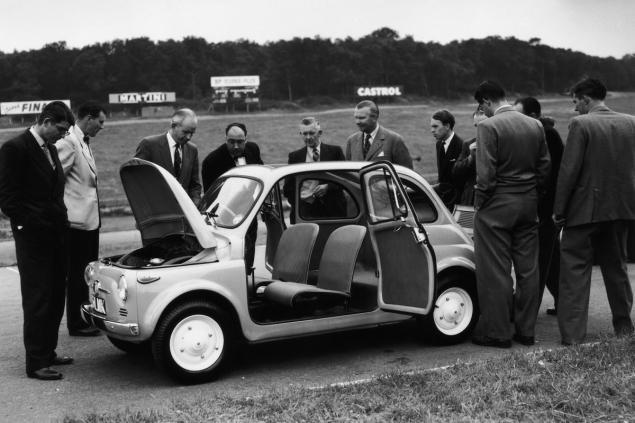
GettyImages Therefore, it was decided to establish the production of a machine that will be available to the masses of workers. Khrushchev chose the Italian Fiat-600 as its prototype. And the release of new items was entrusted to Zaporozhye plant of agricultural machinery.
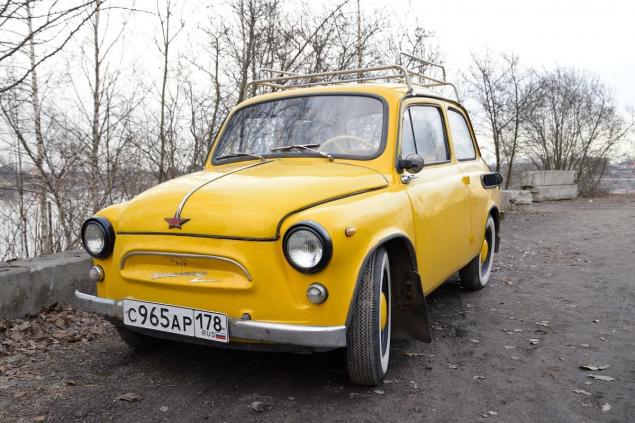
Already on October 1, 1960, the first Zaporozhets car – ZAZ-965 – came off the assembly line. It was produced from 1960 to 1969 and for the unusual shape of the body received the popular love nickname “humpback”. Recall that the later model of the Zaporozhye Automobile Plant (ZAZ-968) surprised Top Gear TV show host Jeremy Clarkson as no other achievement of the Soviet automotive industry.
VAZ-2101 and Fiat-124 In May 1966, a cooperation agreement was signed in Turin between the Soviet Ministry of Automotive Industry and the FIAT concern. One of its conditions was that Italian specialists should design and equip a giant plant for the USSR, capable of producing more than 200,000 passenger cars per year.
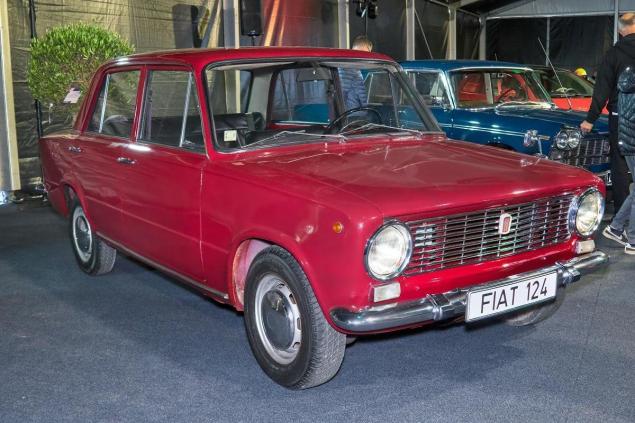
We decided that the prototype of the new domestic sedan will be the Fiat 124, which received in 1966 the prestigious title of “Car of the Year”. It is a mistake to say that the penny is an exact copy of the Italian model. In total, more than 800 changes were made to the design of the Fiat 124 to adapt to Soviet roads.
195808
Instead of the lower shaft engine "Fiat" VAZ received almost a new engine a little more power. Significant changes affected the transmission, suspension and brakes. The body was significantly strengthened. However, the weight of the car as a result increased from 855 to 955 kilograms.
Talking about someone copying something from someone goes on forever. But sometimes external similarity is simply similarity, driven by a desire for simplicity and close requirements. As, for example, in the case of the all-wheel drive Jeep FC and similar to it the legendary "Loaf" UAZ-452.
American all-wheel drive car Jeep Forward Control, aka FC, he is the prototype of the Soviet “loaf” UAZ-450. Created on the basis of the army SUV Jeep CJ-5. Produced from 1956 to 1965 pic.twitter.com/eVcG250cz0
- Historic Photos (@HistoryFoto) April 28, 2021
The Jeep Forward Control was produced from 1956 to 1965. But he was not very popular. At the same time, the UAZ-452 and its numerous successors, due to their simplicity and reliability, are still relevant in Russia.
The article and the preview used photos.

Legendary Soviet cars GAZ-A and Ford A In 1929, industrialization began in the USSR. Within its framework, American companies designed and took part in the construction of automobile plants in Moscow, Stalingrad and Nizhny Novgorod. At the same time, the government bought a license to produce cars of the world-famous Ford Motor Company.
On December 6, 1932, the first passenger car in the USSR came off the assembly line - GAZ-A t.co/E6gl3k07Mi pic.twitter.com/46QO8HmG96
— GAZ (@GAZautomobiles) December 8, 2014
The production of a licensed copy of the Ford at the Gorky Automobile Plant was established only by the end of 1932. The first copies of the GAZ-A generally corresponded to the Ford Model A Standard Phaeton. But the experience of operation in the northern regions of the USSR forced to make a number of changes to the design. In particular, the body was closed and reinforced suspension.
In 1936, when the GAZ-M1 and Ford Model B, produced in the amount of 42,000 GAZ-A became obsolete, Ford purchased another license.

It produced the main car of the Soviet police GAZ-M1, or “funnel”. The prototype was the Ford Model B 40A Fordor Sedan.

But with the external similarity, it was already another design, many of the nodes of which had to be designed anew. Soviet designers reinforced the frame, replaced the springs, reworked the steering and brake drive.
The Moskvich-400 and Opel Kadett K38 were still fighting in Germany in the spring of 1945, and the State Defense Committee had already adopted a resolution "On the restoration and development of the automotive industry." According to it, it was planned to establish the production of the Opel-Cadet K-38 car at the Moscow Small Car Plant (MZMA).
The Soviet passenger car Moskvich-400 (Moskvich-401) is an exact copy of the German Opel Kadett K38, made at the facilities of Adam Opel. Safely exported to the USSR. Serially produced in the USSR at the Moscow plant "ZMA", later - "MZMA" from December 1946 to 1954. pic.twitter.com/YtNgIaeVZ
— Supperbraun (@supperbraun) May 7, 2021
To do this, it was proposed to use captured documentation, equipment and equipment, which had yet to be removed for reparation from the Opel plant in Rüsselsheim. But it wasn't that easy to do.
View this post on Instagram
Posted by Oldcar (@oldcar77)
The fact is that during the war, the plant produced not cars, but parts for bombers. Therefore, in 1944, the Allied aviation leveled it to the ground. Part of the equipment was still found, but the original drawings and master model of body parts were lost.
View this post on Instagram
Posted by Stary Moskvich (@old_moskvich)
To solve the problem in the shortest possible time helped the use of captured German engineers and copying the surviving samples. So literally recreated four-door Opel Kadett K38, called Moskvich-400.
ZAZ-965 and Fiat-600 In the 50s of the XX century, the concept of a practical and affordable small national car became widely popular in Europe. In Germany, the Volkswagen Beetle became such a model, in Italy - the Fiat-500.

GettyImages Therefore, it was decided to establish the production of a machine that will be available to the masses of workers. Khrushchev chose the Italian Fiat-600 as its prototype. And the release of new items was entrusted to Zaporozhye plant of agricultural machinery.

Already on October 1, 1960, the first Zaporozhets car – ZAZ-965 – came off the assembly line. It was produced from 1960 to 1969 and for the unusual shape of the body received the popular love nickname “humpback”. Recall that the later model of the Zaporozhye Automobile Plant (ZAZ-968) surprised Top Gear TV show host Jeremy Clarkson as no other achievement of the Soviet automotive industry.
VAZ-2101 and Fiat-124 In May 1966, a cooperation agreement was signed in Turin between the Soviet Ministry of Automotive Industry and the FIAT concern. One of its conditions was that Italian specialists should design and equip a giant plant for the USSR, capable of producing more than 200,000 passenger cars per year.

We decided that the prototype of the new domestic sedan will be the Fiat 124, which received in 1966 the prestigious title of “Car of the Year”. It is a mistake to say that the penny is an exact copy of the Italian model. In total, more than 800 changes were made to the design of the Fiat 124 to adapt to Soviet roads.
195808
Instead of the lower shaft engine "Fiat" VAZ received almost a new engine a little more power. Significant changes affected the transmission, suspension and brakes. The body was significantly strengthened. However, the weight of the car as a result increased from 855 to 955 kilograms.
Talking about someone copying something from someone goes on forever. But sometimes external similarity is simply similarity, driven by a desire for simplicity and close requirements. As, for example, in the case of the all-wheel drive Jeep FC and similar to it the legendary "Loaf" UAZ-452.
American all-wheel drive car Jeep Forward Control, aka FC, he is the prototype of the Soviet “loaf” UAZ-450. Created on the basis of the army SUV Jeep CJ-5. Produced from 1956 to 1965 pic.twitter.com/eVcG250cz0
- Historic Photos (@HistoryFoto) April 28, 2021
The Jeep Forward Control was produced from 1956 to 1965. But he was not very popular. At the same time, the UAZ-452 and its numerous successors, due to their simplicity and reliability, are still relevant in Russia.
The article and the preview used photos.
This year, I am engaged in New Year's gifts, I bought my mother a ticket to the sanatorium, and my mother-in-law a warm blanket.
To have enough money on the card for the whole of 2022, on New Year’s Eve, be sure to put the lure of happiness in your wallet.
